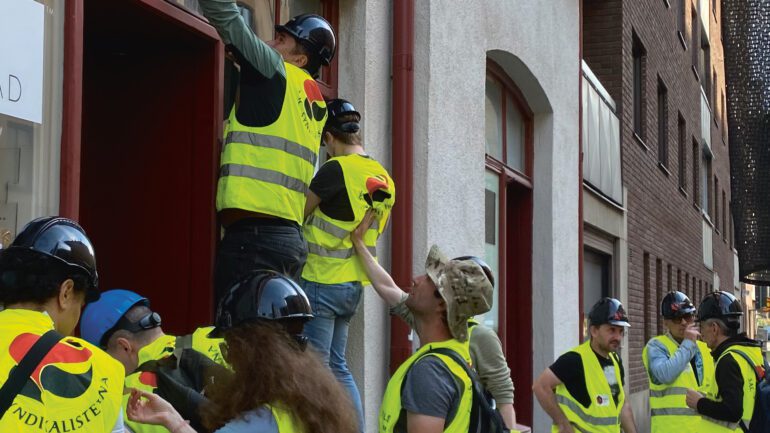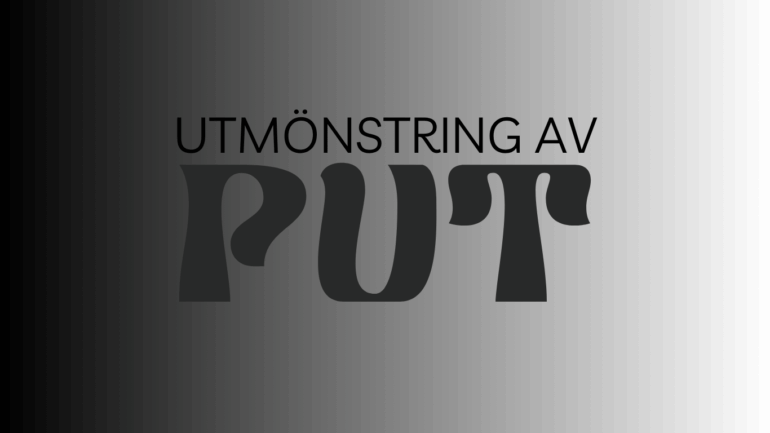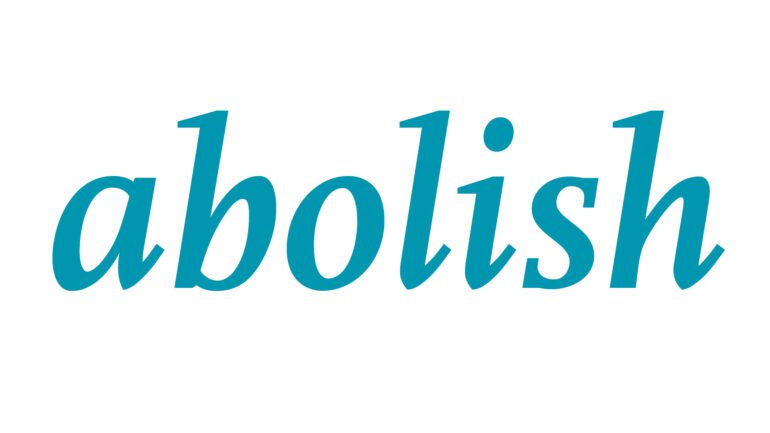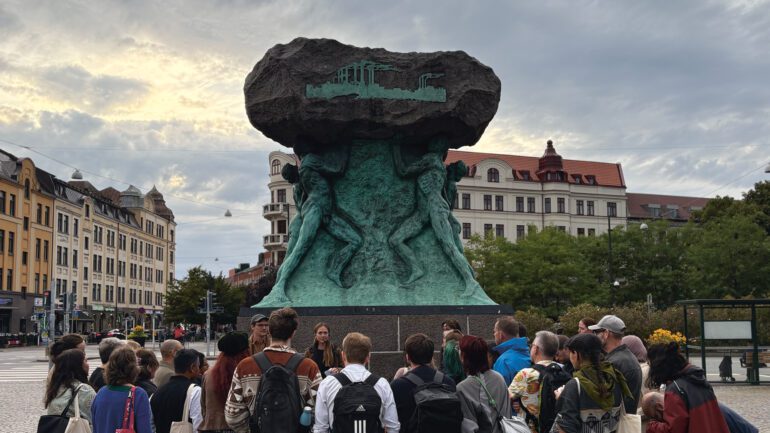By Widad Jebrail, lecturer on refugee conditions and rights.
Being a refugee is hard. Being an unemployed refugee is twice as hard. Refugee life throws us into distorted realities, and we are expected to navigate them while somehow keeping our dignity intact. During my years in Sweden, I learned how easy it is for people and politicians to say, “Learn the language, find a job, problem solved.” If only it were that simple. The truth is, entering the labor market as a refugee is a far deeper and more complex struggle. Refugees are placed in a system where the odds are stacked against them. In the process, many lose not only opportunities but also their dignity, self-esteem and, at times, even their sense of self.
In Sweden, despite significant investments and comprehensive efforts to accelerate refugees’ entry into the labor market, substantial problems remain. Both the way policies are implemented and the inherent challenges of the refugee experience often hinder, if not entirely prevent, the possibility of building sustainable careers.
These challenges are complex and interconnected, deeply rooted in emotional, psychological, social, economic, and cultural structures. Drawing on both my personal experience as a refugee in Sweden and my academic understanding, I will share stories that move beyond the simplified equation of “learn the language and find a job” stories of frustration, resilience, and the often unseen battles that shape daily life.
Some of the challenges refugees face in the Swedish labor market can be understood across three interconnected layers: Social, Practical, Emotional and Psychological.
Social Challenges
Unfamiliarity & Parallel worlds
Many of the challenges I faced stemmed from navigating unfamiliar cultural codes. During my early years in Sweden, I heard a stand-up comedian share a story that stayed with me. He said that when Swedish youth were asked if they would help their parents in financial trouble, most answered no. He explained: “Don’t think we are ungrateful or don’t love our parents. As Swedes, we trust our institutions. We work, pay taxes, and the system is supposed to take care of our parents.” Coming from a Middle Eastern background, where helping your family without limits is the norm, this perspective initially felt completely alien.
It took me years to understand why swedish youth said they would not help their parents financially. Over time, I came to see the logic; trust in institutions. But reaching that point of understanding was neither easy nor sudden. Unfamiliarity breeds fear and anxiety; after all, we fear what we don’t know. Adapting is a long and challenging process, and for some, it may never fully happen. This tension creates what I call “parallel worlds” living between the culture we come from and the one we now inhabit. Such struggles can make it even harder to enter the job market.
Stereotyping & Limited roles
Unfamiliarity often leads to stereotyping, as it is easier to rely on familiar labels than to embrace the complexity of individual lives. This is not one-sided; both refugees and host societies carry generalized judgments about each other. For refugees, such shortcuts often confine them to narrow job categories, typically low-skilled, regardless of their actual qualifications.
I have lived this reality myself. My siblings and I all hold law degrees, but when we sought help from the Swedish Public Employment Agency, not a single suggestion reflected our professional background. Instead, we were guided toward generic, ill-fitting jobs. The result was confusion, prolonged unemployment, and a sense of wasted years. This wasn’t just a personal failure; it was the direct outcome of a system that compresses refugees into a single professional basket.
Even when refugees secure employment, they often feel compelled to work three times harder to prove themselves and to challenge the suspicions surrounding them. I vividly remember my sister’s first job: In every meeting, her boss reminded her that a previous Syrian employee had stolen company data. That prejudice overshadowed their interactions for as long as she worked there. Researchers at Malmö University have shown that migrants from Africa and the Middle East face particularly significant challenges in the labor market. Systemic deficiencies, such as complicated validation processes for foreign credentials, language barriers and deeply rooted stereotypes, contribute to making their integration more difficult
Unfortunately, the rise of right-wing rhetoric in Sweden and across Europe has further normalized hostility toward migrants, framing them as outsiders and burdens (Norocel, 2017; Mulinari & Neergaard, 2017). Such an environment does not foster growth; instead, it creates tension that often pushes refugees to retreat into their smaller communities and identities, where they at least feel a sense of acceptance.
Practical Challenges
Accommodation struggles
I never fully grasped the complexity of Sweden’s accommodation system until I tried explaining it to friends in other countries. Over the past nine years, my family and I have moved between nine different apartments. This instability wasn’t just inconvenient; it was a constant source of stress that hindered my integration journey, and in turn my job hunting.
I was placed in an SFI (Swedish for Immigrants) school for academic graduates, where the curriculum was intensive. At the same time, I was struggling to find accommodation for my parents and myself in Stockholm, staying in a single room in my sister’s one-bedroom apartment. I had no mental space to focus on my studies, and my grades suffered. Only when I secured partial stability and my own room could I concentrate fully. The pressure of these circumstances can affect performance in ways outsiders often overlook. I remember one test when the teacher, breaking her routine, announced the top scorer to the entire class. I was shocked, thrilled, and proud, but also frustrated that my success had been made public, as if it were an anomaly.
The truth is, circumstances like housing instability directly influence performance, regardless of your abilities. Research supports this experience: A 2025 study found that refugees living in institutional housing during the asylum process were more likely to use mental health services than those in self-organized housing, even after adjusting for sociodemographic factors. This suggests that housing instability can have significant psychological impacts, which in turn affect academic and professional performance.
Language barrier
Mastering Swedish is undoubtedly a significant challenge. Limited fluency can make you appear less knowledgeable, restrict conversations, and even strip you of respect, leaving others in control. But how does one truly master the Swedish language? I was awarded for completing the language learning school in record time. Yet, that only allowed me to handle basic daily conversations about the weather or at the grocery store, where opportunities to engage with native speakers were limited.
In an effort to overcome this challenge, I immersed myself in Swedish culture: listening to music, reading novels, and practicing the language as much as possible. Yet I soon hit a wall. Discussing topics that genuinely interested me was mentally exhausting, and even when I tried to express my thoughts, they emerged in simple, almost childlike language that failed to capture what I truly wanted to convey.
This challenge is far from trivial. Research shows that refugees with limited Swedish proficiency face significant employment barriers, regardless of prior education or professional experience (IFN, 2022). The process of learning a new language to a level of mastery capable of supporting professional and social participation can take years of consistent effort. Not all refugees have the resources, mental energy, or circumstances to meet this challenge, making it a profoundly unequal starting point in the labor market.
Navigating the System
When I arrived in Sweden in 2013, I quickly became the main contact for my family, even though I was the youngest. The reason was simple: I was the only one who was proficient in English. This meant accompanying my family to every appointment, from the Swedish Migration Agency to healthcare visits. Looking back, the main challenge for me then wasn’t the language; it was understanding the system itself.
Sweden’s system is impressive in its scope. Each institution has a clear purpose, even if it’s complex. Life in Sweden is structured around key institutions such as Arbetsförmedlingen (the Swedish Public Employment Agency), CSN (the student financial aid), Försäkringskassan (the Swedish Social Insurance Agency) and others. Together, they shape your existence as a refugee here.
Arbetsförmedlingen stood out to me as the most confusing. By its name, one would assume it’s there to help you find a job. That assumption is wrong. Arbetsförmedlingen primarily guides newcomers on how to navigate the Swedish labor market. While the staff were meant to understand the challenges refugees face, I soon realized they were often as unsure as we were. Entrusting them with my future was, in hindsight, a mistake.
One of the system’s major flaws, in my opinion, is placing refugees under an institution designed for citizens. Standardized programs rarely account for language barriers, foreign credentials, or cultural differences. Research shows many refugees struggle to benefit, and private providers often rely on one-size-fits-all approaches that fail to help (Diedrich & Hellgren, 2018; Emilsson, 2014; Borevi, 2014). Despite generous funding, results frequently fall short.
I’ll never forget that job coach who, after months of failed attempts, finally suggested: “Maybe changing your name will at least get you an interview.” I sat there stunned. Was this really her solution- to erase my identity? To treat a national challenge that threatens both Sweden’s future workforce and my own professional path as something that could be solved by a new name?
Emotional and Psychological Challenges
Emotional bonds & Family structures
Love and family relationships often undergo deep transformations during the refugee experience. Displacement does not only separate people geographically but also exposes couples and families to new cultural norms that challenge their emotional bonds to each other. In societies like Sweden, where gender equality and individual autonomy are central values, refugees from more patriarchal and family-oriented backgrounds can face a sharp contrast.
These differences can create profound tension. Traditional roles that once structured family life may be disrupted, with women often finding greater independence through education, employment, and legal rights, while men may experience a loss of authority or identity. At the same time, younger generations often absorb new gender norms faster, widening the gap within families and further challenging cohesion. Research has shown that these changing dynamics can both empower women and destabilize relationships, sometimes resulting in separation or divorce (Darvishpour, 2002; Gruber, 2016).
In this way, intimate relationships become another challenge for refugees where the refugee experience is lived, negotiated, and sometimes painfully reshaped.
Trauma and guilt
Becoming a refugee is undeniably traumatic, a rupture in the identity that changes life forever, with no clear path back to “normal.” The psychological scars of war, displacement, and the collapse of entire communities create not only individual wounds but also a shared injury to group identity, memory, and future orientation. Scholars call this collective trauma: the loss of cultural continuity and belonging that reshapes whole societies (Saul, 2013).
I still remember my sister’s wedding in Syria in 2011: three hundred guests dancing, laughing, and celebrating. It was the last time my family experienced joy together. Watching the video today, I realize that every person in that hall has since been scattered across continents. What was once a close-knit community has been dispersed, leaving only fragments of what we once shared.
On top of that sits personal trauma: PTSD, depression, anxiety and psychosomatic symptoms directly linked to persecution and conflict. The World Health Organization estimates that about one in five people in conflict settings experience mental health conditions ranging from mild to severe, and refugees are at heightened risk (WHO, 2022). These conditions are often invisible, and many go unrecognized or untreated.
Then there is survivor’s guilt: the painful feeling of unworthiness that comes from surviving while others suffer or perish.
Collective, personal trauma, and survivor’s guilt interact and compound one another. They impair concentration, memory, and emotional regulation, skills needed to learn a language, study, or hold a job. In this way, trauma is not only an individual hardship but a structural barrier to labour-market access.
Paths to recognition and belonging
In conclusion, finding a job as a refugee in Sweden requires far more than following official programs, learning the language, or relying on job agency staff; it is a process of reshaping both one’s mindset and identity. It is a resilience challenge that require a very solid mental and emotional strength: a battle with one’s self first and then with navigating a complex system, overcoming stereotyping, and contending with cultural and social barriers.
Addressing these challenges requires more than generic employment programs or well-intentioned policies. Employers, institutions, and society need to recognize the unique realities refugees face and provide tailored support through skilled staff capable of offering comprehensive guidance. I would also suggest that refugee education be introduced into school curricula to foster empathy and familiarity, reminding us that anyone can become a refugee at any time, especially in the face of global crises such as climate change.
Only then can refugees move beyond survival jobs toward sustainable careers, restoring dignity, purpose, and the professional identities they bring with them, all while navigating the additional battles life as a refugee imposes. Refugees are not a burden; they are an asset, and the equation must be made equal.
On a personal note, in an effort to safeguard my professional career, I made the difficult decision to leave Sweden almost three years ago, after losing hope of ever being given a fair chance at a meaningful job. I eventually settled in Dubai, where I have since been working at a museum, presenting exhibitions to visitors. While this role does not fully reflect my qualifications or long-term career path, it offered me a way forward.
Looking back, I still feel the pain of having to move once more and leave my family behind. Starting over in a new country is never easy. Yet, I also recognize how much this step has expanded my life experience. In Dubai, I have managed to build a new professional network, largely thanks to the many opportunities for networking through conferences and events—opportunities that felt nearly impossible to access in Sweden.
Still, I miss the beauty of Sweden and its nature deeply. I hope one day I can return, to be close to my family again. Perhaps by then my turn in the queue for a first-hand apartment will have come, and maybe, just maybe, Sweden will finally give me a fair chance at a meaningful job.
